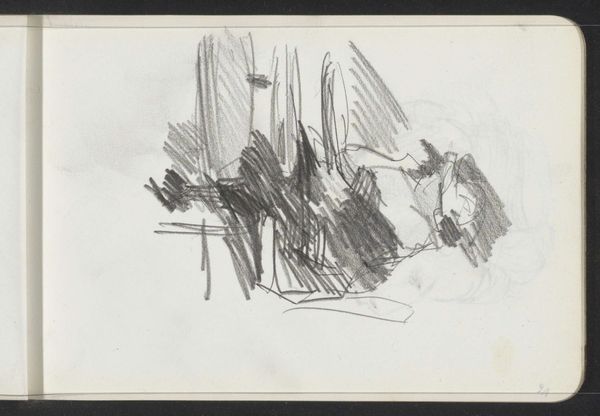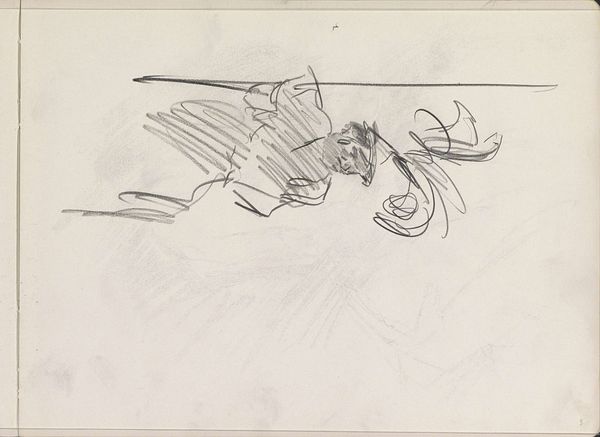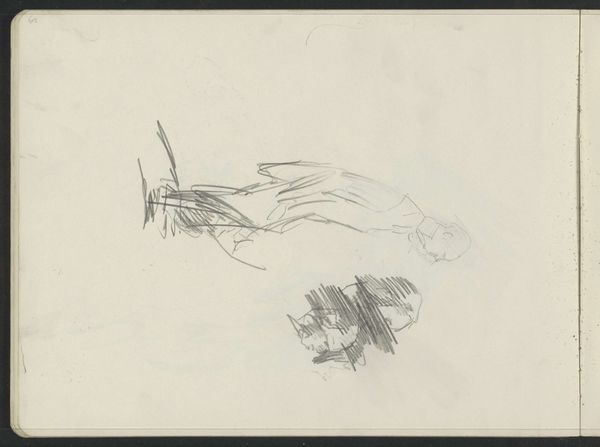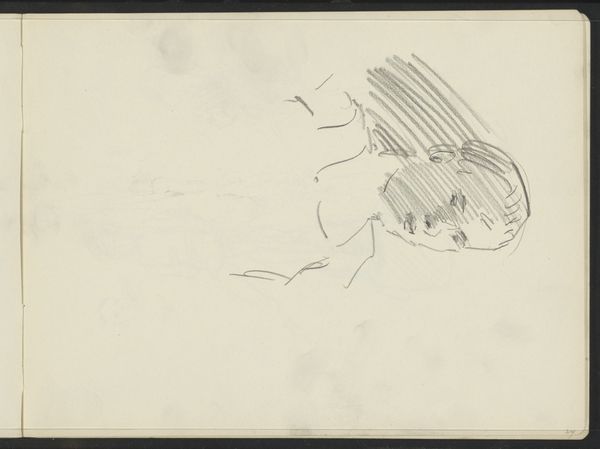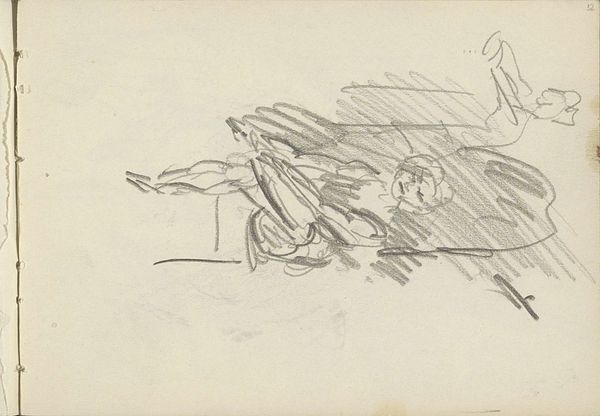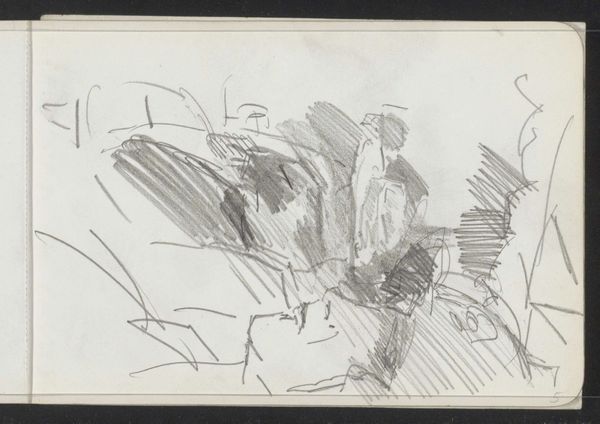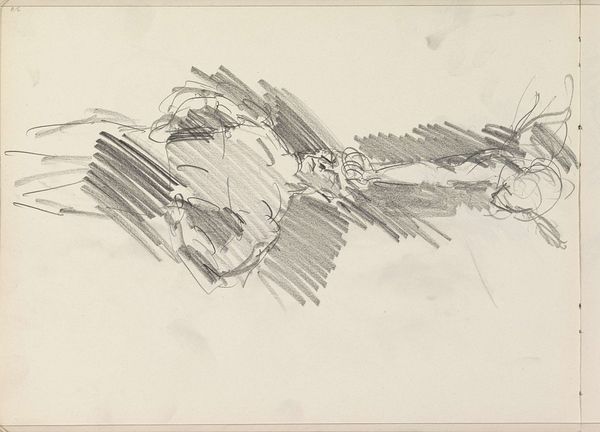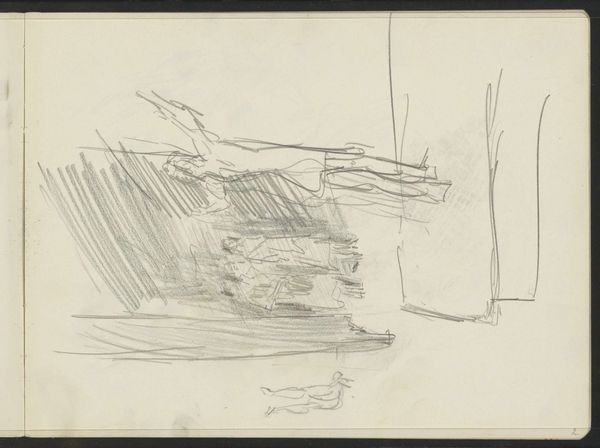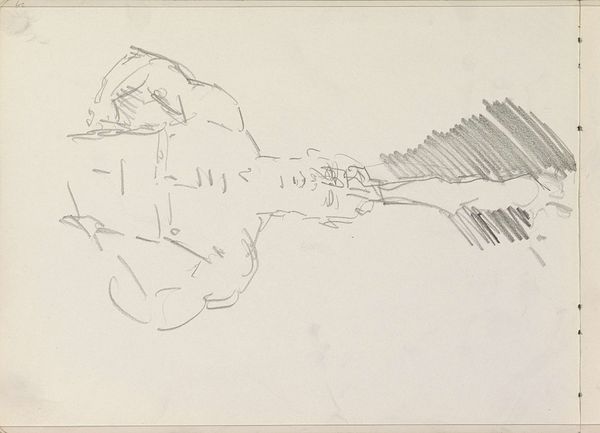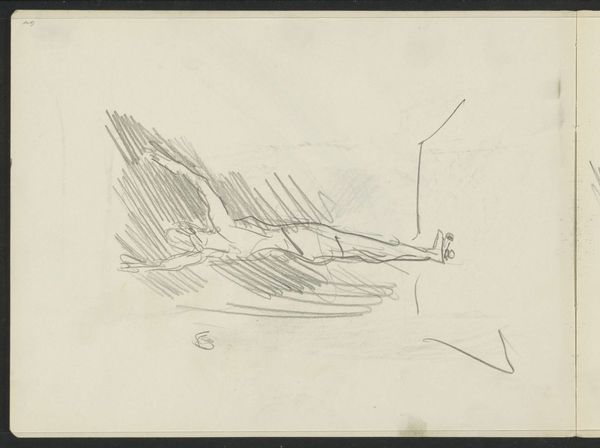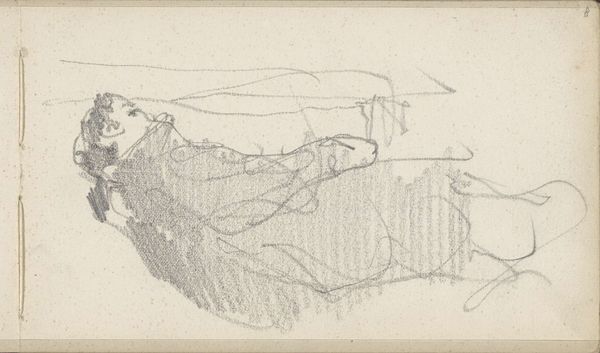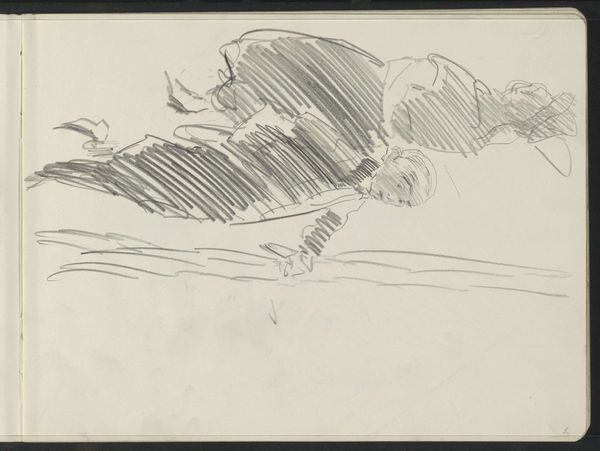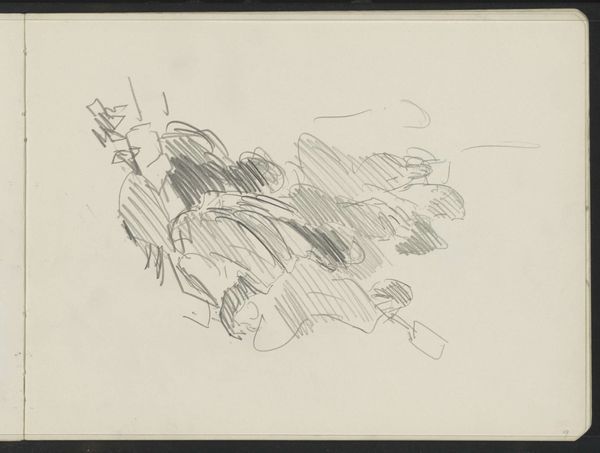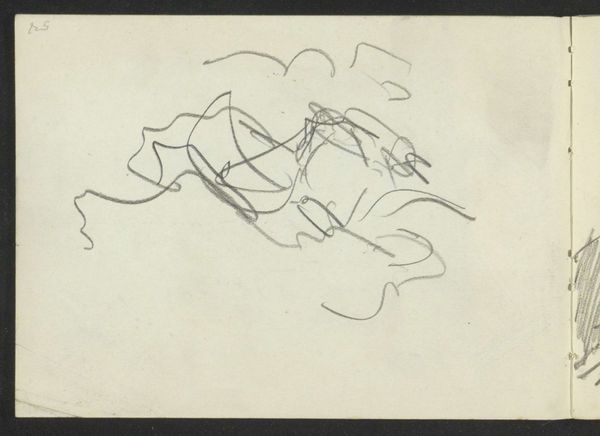
Copyright: Rijks Museum: Open Domain
Curator: This intriguing sketch at the Rijksmuseum, entitled "Woman with Hat, Seen From the Back", was created by Isaac Israels between about 1915 and 1925 using pencil. It is an impressionistic work and also appears to be a pen sketch. Editor: My initial impression is that the sketch appears quick and ephemeral. There’s a certain vulnerability to depicting a woman with her back turned, denying us her gaze. It almost feels like an intimate moment captured on the fly. Curator: Exactly. The apparent haste reveals much about Israels's method. Consider the economy of lines, the material reality of the graphite on paper; Israels captures a specific social class. Editor: And isn't that gesture itself telling? To observe, to document, implies a position of power. What's her story? What world does she inhabit in comparison to Israels' position in society? There is, for example, her social standing being visually suggested, via dress. The hat serves here not merely as utility. Curator: Indeed, these sketches showcase his mastery of capturing a mood, a fleeting gesture, an outfit perhaps bought at great cost that still required expert craft and attention in it's physical creation and materials. He gives the illusion of effortlessness while deploying his tools to his subject. The pencil allows a certain immediacy. It allows him to seize moments from modern life for consumption by, most likely, another part of modern life that is the viewing public. Editor: The cross-hatching adds volume to her form, which then begs a consideration of what and whom he chose to monumentalize through the means of his labor? Her apparent affluence becomes, also, a sort of shield between viewer and subject. It raises important questions, also, around voyeurism. It makes me consider our responsibility, and Israel's as well, in seeing this moment. Curator: Well, I think we can all agree that Israels work provides rich insight to ponder the materials and meaning around modern urban existence. Editor: A perfect encapsulation. It forces us to ask how our own perspectives affect our understanding. Thank you.
Comments
No comments
Be the first to comment and join the conversation on the ultimate creative platform.
